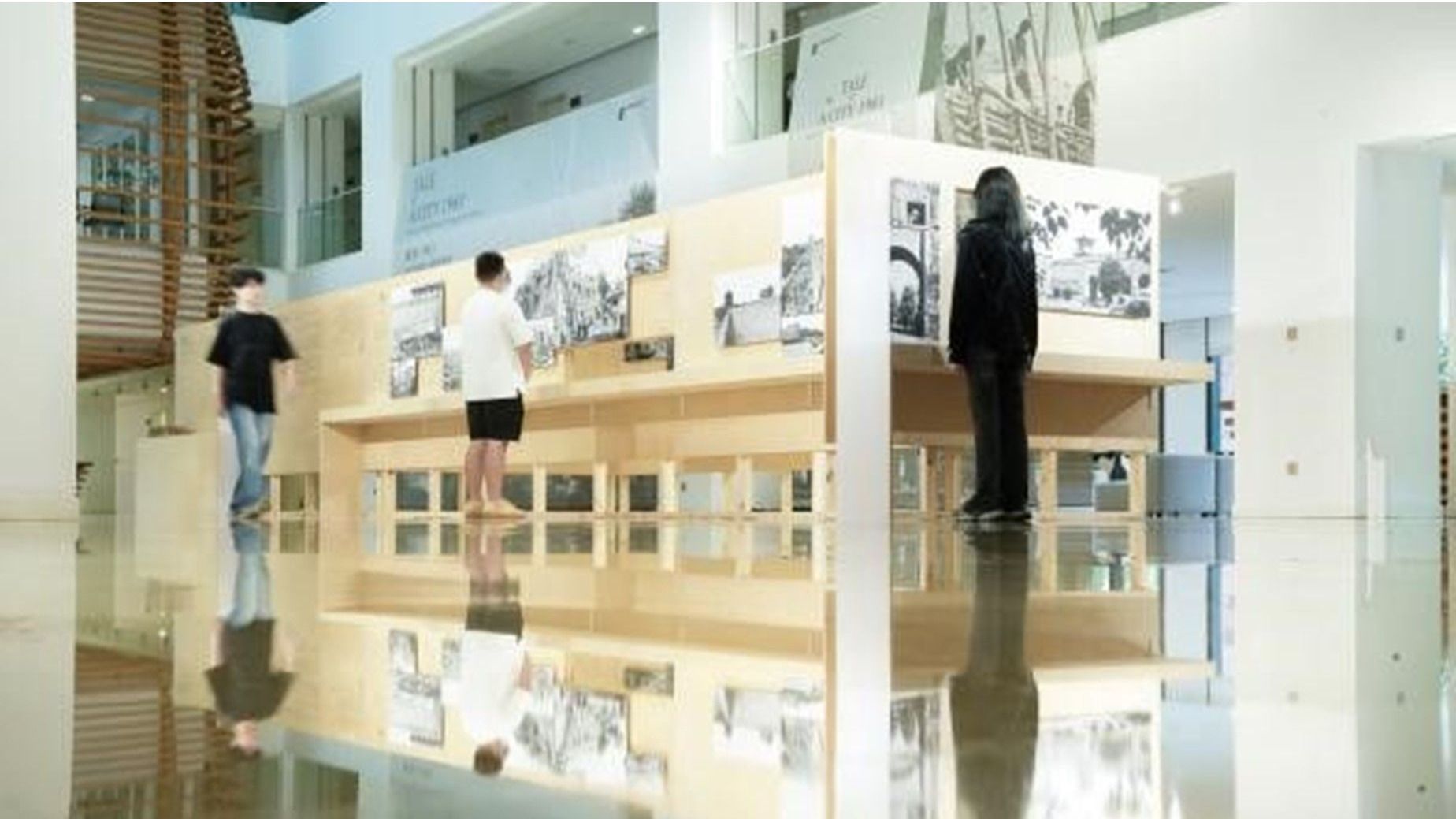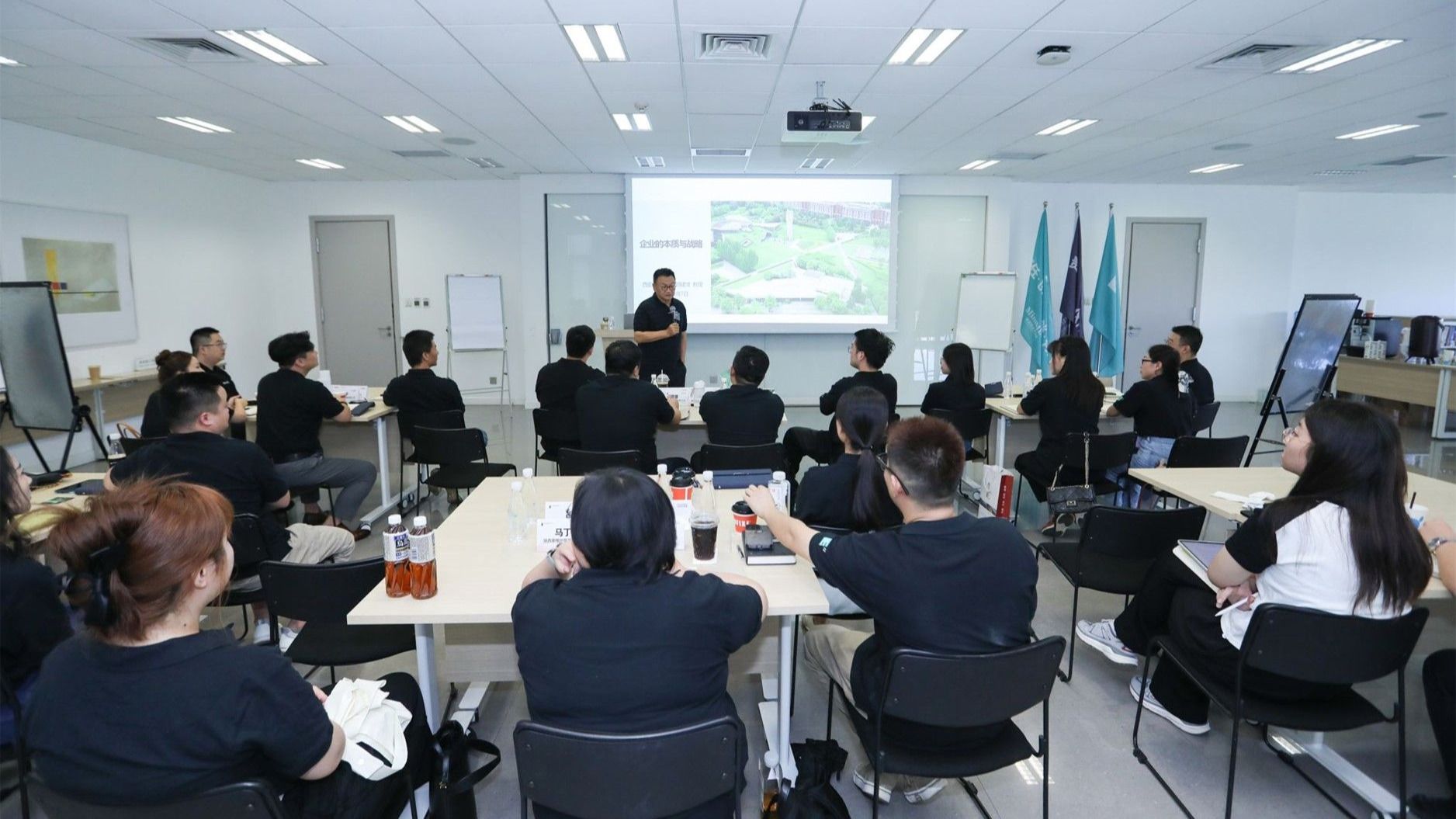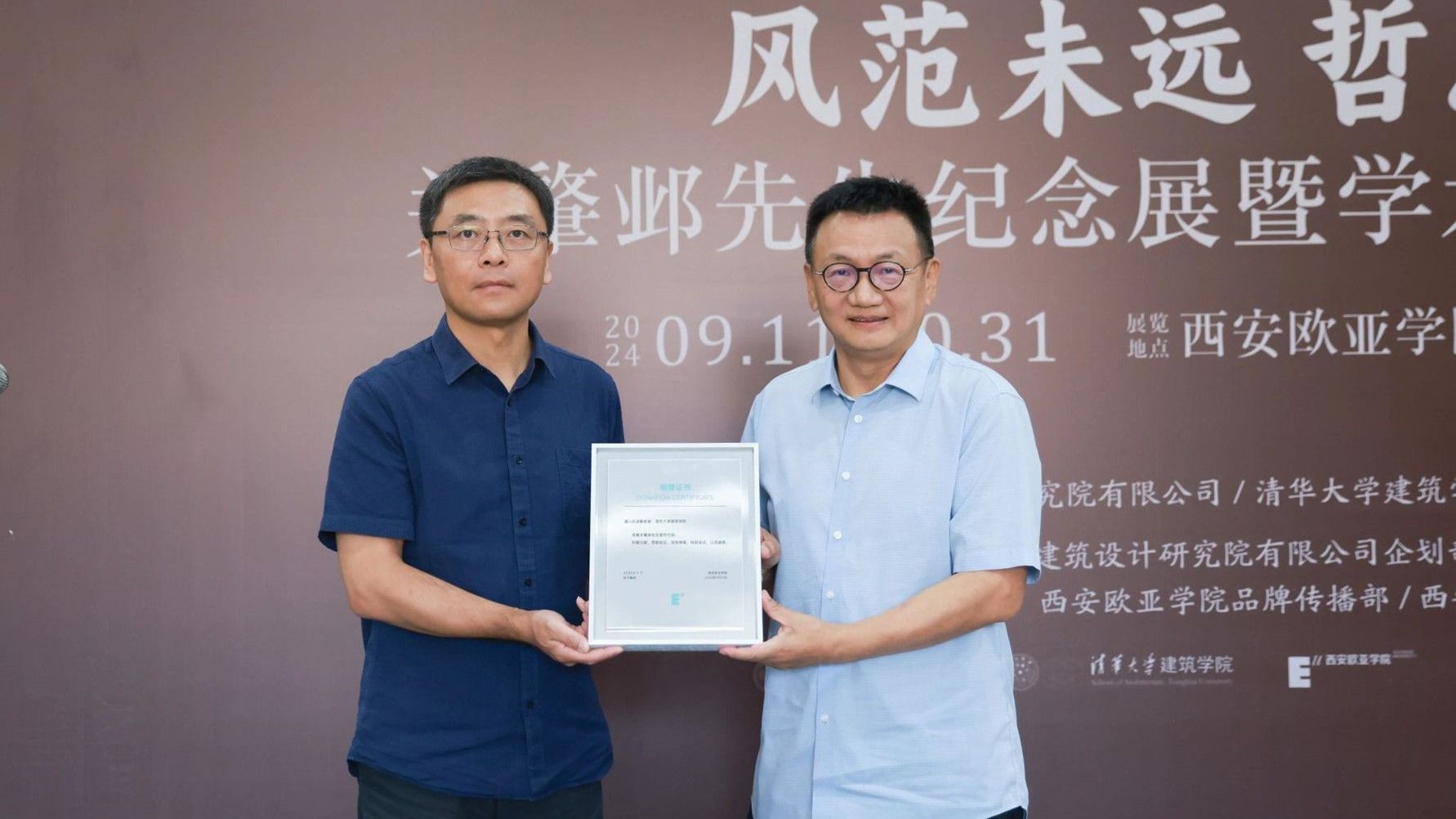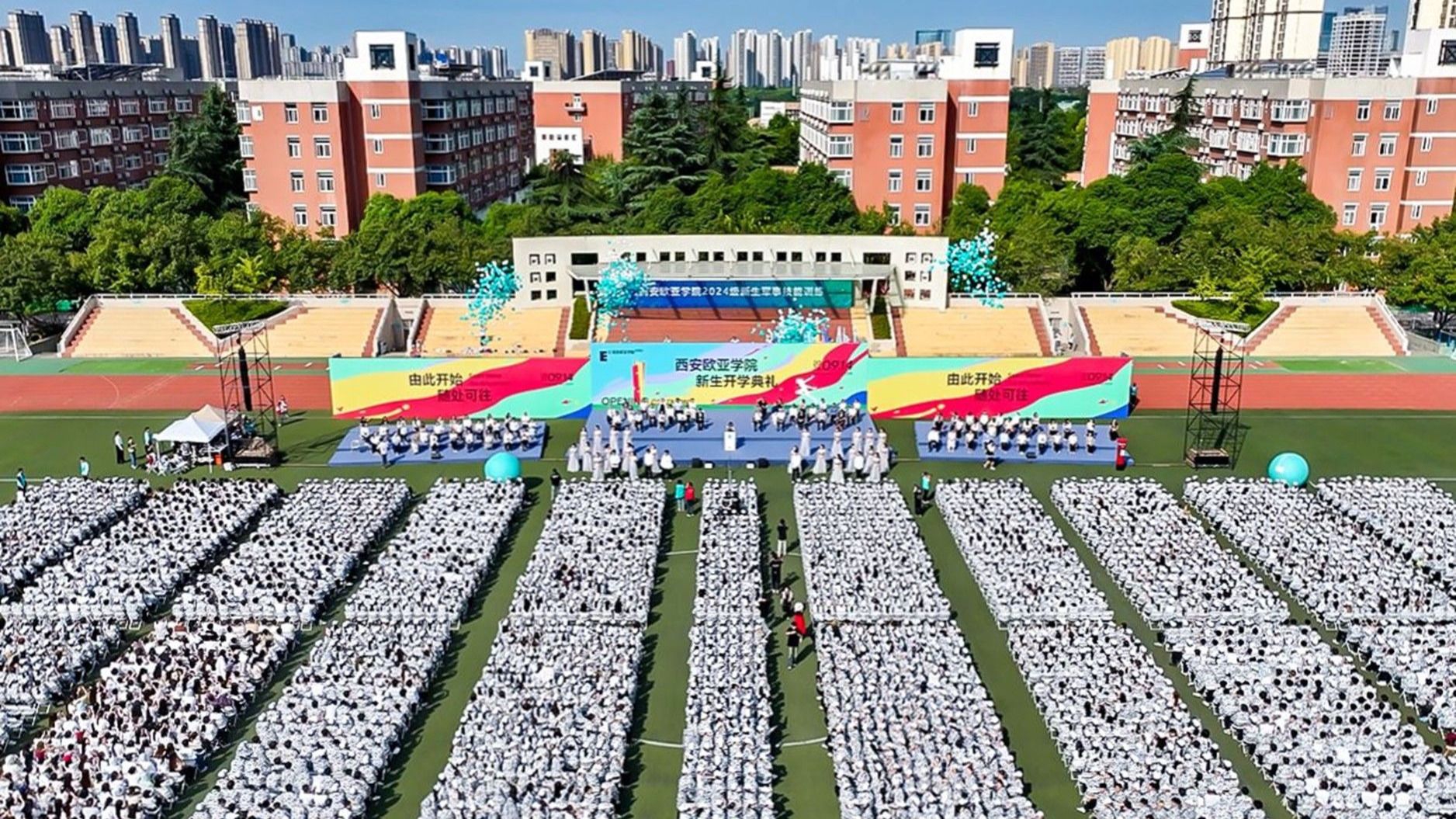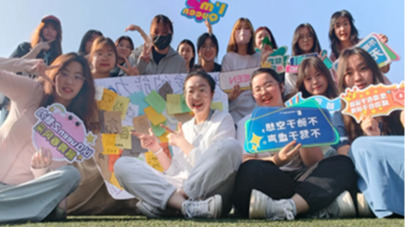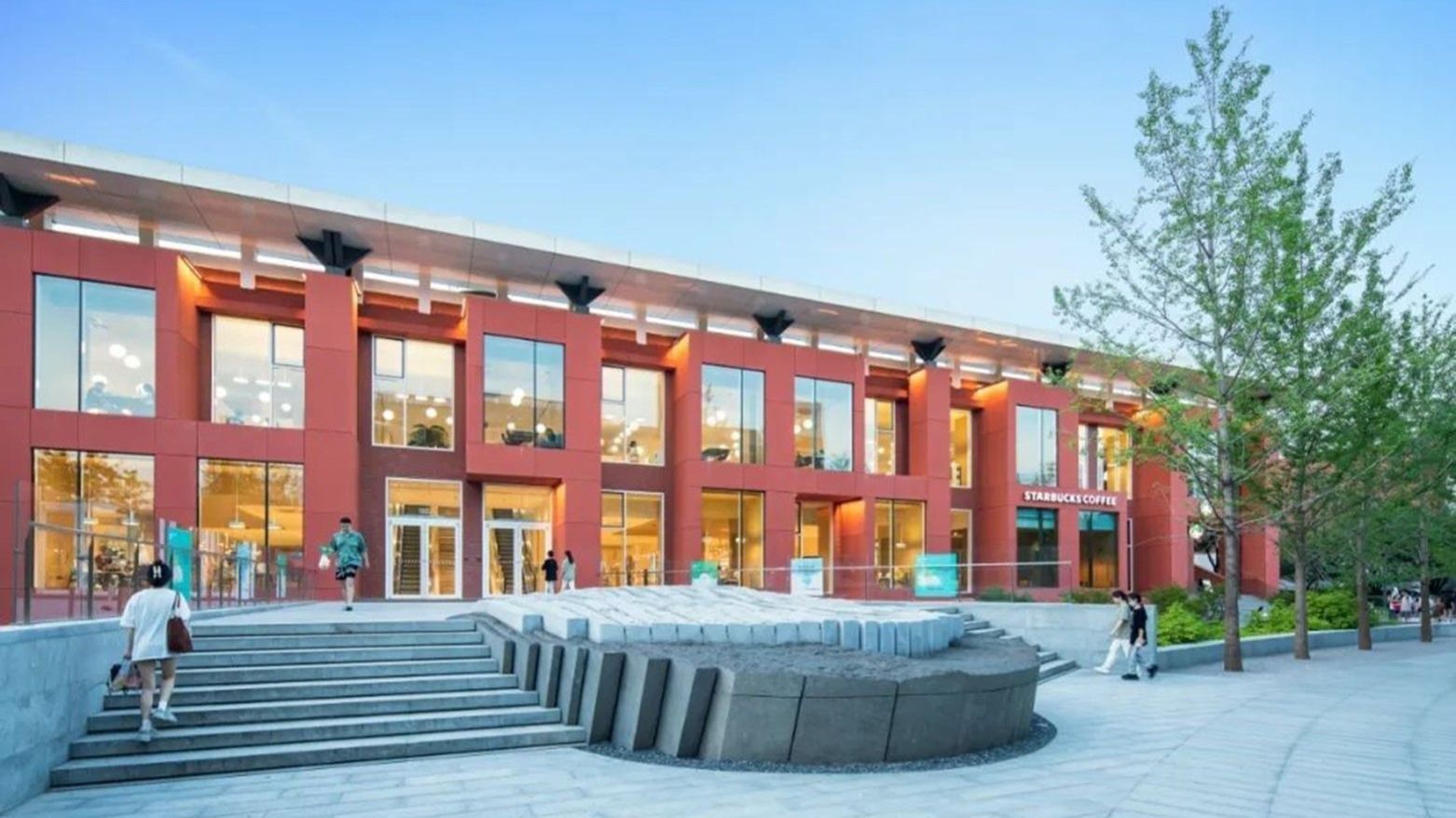Every year in November, the Piano Island of Xi'an Eurasia University becomes exceptionally romantic. On November 8, the "Humanities in Four Seasons · Winter Art Season" Lawn Concert hosted by the School of Humanities and Education came as scheduled. Melodious piano sounds, touching songs, and happy laughter all unfolded slowly in this carnival of poetry and songs.
(Fig. 1) Scene of the Lawn Music Festival
At the scene of the music festival, Zhao Wenqi, a teacher from the School of Humanities and Education, who is known as a "piano poet", improvised. The jumping notes condensed the autumn scenery into poems and teachers and students enjoyed dancing and reciting freely. 10 teachers also sang the original song "Listening to Falling Ginkgo Leaves" created by Zhao Wenqi, which moved the audience and aroused bursts of cheers.







This "busker-style" performance not only attracted many teachers and students via sounds but also was reported by the media. The event topped the Weibo hot search twice in one day, arousing many netizens' likes!


△ Lawn Music Festival with Media Focus
(Fig. 2) 10 teachers sing an original song for students, triggering media coverage
"Humanities in Four Seasons" Promotes All-round Development of Students
Exercise strengthens the body, reading enriches the soul and art enriches the spirit. Based on the talent cultivation needs in universities in the new era, in order to promote the all-round development of students in a multidimensional way, the School of Humanities and Education launched the brand activity of "Humanities in Four Seasons" in 2016. According to different seasonal characteristics and educational and teaching needs, it has set up the "Spring Sports Season", "Summer Academic Season", "Autumn Welcome Season", and "Winter Art Season". In each season's theme unit, students are cultivated for independent learning ability, good physical fitness, healthy aesthetic taste, and good artistic accomplishment. In the situation of seeking truth and advocating kindness, the comprehensive and all-round development of students is achieved.
The "Humanities in Four Seasons" has gone through its eighth year. During the eight years, it has received countless praise from teachers, students, and the outside world. Many students know themselves, open up themselves, and understand the beauty of learning and education in the activity, remaining grateful to this day. At present, the 2023 "Humanities in Four Seasons · Winter Art Season" is still in progress. See pictures for more information.

Dialogue with "Piano Poet" Zhao Wenqi: Charm of Improvised Music
Text by Jiang Yurou, Zhang Yilin and Li Xiaofei
At this lawn music festival, Zhao Wenqi, a teacher from the School of Humanities and Education, and his improvisation were very impressive. The official Weibo account of Xi'an Eurasia University has had an in-depth dialogue with Zhao Wenqi earlier. Today, it is published again on this occasion to enter the music world of this "piano poet" and appreciate the beauty of aesthetic education.

Zhao Wenqi, a film composer, impromptu pianist, deputy secretary-general and music advisor of Xi'an Children's Singing and Dancing Association, test syllabus maker and judge of the grading test of impromptu accompaniment (performance) by the Ministry of Culture and Tourism of the People's Republic of China, art director of the Specialized Committee on Whistle Art under the Musicians Association of Xi'an, graduated from Xi'an Conservatory of Music, praised as the "Piano Poet". He is skilled in improvisation and has created several original piano pieces and film scores. He has been engaged in research on music enlightenment for teenagers and the promotion of the teaching methodology of impromptu piano performance for a long time. Besides, he is crazy about classical music and acts in operas. His representative pieces include the original whistle pieces Tang West Market, Grandma Living on Heping Road, Eight Rivers, Drizzle, and Root and Sprout.
At the School of Humanities and Education, Xi'an Eurasia University, Zhao Wenqi gives lessons such as Chorus & Conduction and Impromptu Accompaniment. He is good at impromptu composition and obsessed with classical music. In his eyes, any sound can become an inspiration, allowing him to compose beautiful piano pieces. This is why he is called the "Piano Poet" by teachers and students.
He said, "Music can be a partner of literature. Of course, the piano and whistle can be combined. Impromptu poems or tuneful whistles can be integrated into the piano performance. An impromptu is a fruit of unrestrained imagination and rich inspirations, and turns into an everlasting classic piece after being recorded by chance."
Q1: What does music mean to you? Zhao Wenqi: A man has flesh and blood. Music means blood to me in my life.
Q2: How did you become attached to improvised music? Zhao Wenqi: Over the past two years, I have organized improvised music sharing several times at Xi’an Eurasia University. I like improvisation because it is unfettered and flexible like splashed-ink landscape paintings. Actually, many songful pieces were impromptu at the very beginning but merely collated into fixed tunes for being sung.
In my opinion, the creation derives from a moment of inspiration. Inspiration occurs to everyone. Someone whistles a tune at the staircase or hums an unknown song on the path, but they are not captured.
Q3: What do you feel when you give music lessons at Xi’an Eurasia University?
Zhao Wenqi: Currently in China, pre-school education involves two categories, namely professional theory courses such as psychology, pedagogy, and five fields, and professional art courses. For example, music and art teachers should have special skills and can sing and play, and do some visual arts.
But professional art courses are usually not learner-friendly. For example, students who majored in preschool education will spot the deficiencies in classroom teaching once they start their career as teachers: they cannot play and sing with the children in their class, because most students are zero-based in professional abilities at college admission. It is impossible to be skillful at the piano in only four or five semesters.
It apparently does not work if the traditional teaching methods of pianos are directly applied in preschool education. I have worked at Xi’an Eurasia University for four or five years. We have established our own complete set of teaching systems: the piano teaching system centered on impromptu accompaniment and singing while playing the piano.
So students are often seen playing and singing children's songs and popular songs, and occasionally playing some classical piano pieces at Piano Island in the north of the teaching building. This teaching system can be utilized by our students immediately upon graduation. It will arouse students' interest in music at the fastest pace. It is a major breakthrough we have made in piano teaching.

(Fig. 3) Zhao Wenqi's first impromptu piano sharing session
Q4: How exactly has piano teaching been reformed? How are traditional music and improvisational music teaching integrated? Zhao Wenqi: Traditional music teaching largely resembles a facsimile. After the reform, we first impart the basic skills to students and then encourage them to create. They are encouraged to be creation-oriented music teachers (a large number of nursery teachers are music teachers) to guide children to discover and appreciate what is fine and good through games. So far, our students have created many works. In the future, our students will be skilled at playing, singing, and creating. Passing on traditions and then innovating is what truly matters.
Improvised music teaching has not decoupled from traditional music. It is just more delicate. We highly value the principle: teaching students in accordance with students' aptitude and without bias. Students vary in their receptivity, which has led to some problems in promoting our teaching reforms.
On this account, we have set "flexible" assessment criteria. For example, we currently evaluate the pass rate for a semester, but we also have another assessment standard—the eight-year assessment. The first four years, from admission to graduation, form the first stage. In the second stage, the first year is a preparation period. The second year is an appreciation period during which students will identify their deficiencies and what they lacked in school. In the third and fourth years, they will have time to adjust their studies. By the eighth year, we will be able to truly assess whether our education has been successful. We evaluate students at the end of each semester, and society evaluates them four years after graduation. Ultimately, the final assessment reflects the quality of our teaching.
Q5: How do you give lessons to zero-based students in preschool education, compared with professional students in music? Zhao Wenqi: Sometimes, students with no prior knowledge struggle to understand what teachers impart, leading to negative feelings. However, we gradually adjust our approach and continuously revise and improve our internal teaching materials.
For example, popular songs on platforms like Douyin can significantly boost students' interest in learning music. We use such material as part of our "dynamic" teaching resources. By dint of this trend, we encourage students to quickly identify the elements related to these notes on the piano. In the end, more efforts should be made to improve listening skills so that students can immediately play a tune they like on the piano.
Q6: How can we eliminate the fear of learning music through improvised music? Zhao Wenqi: Music is the least thing to be afraid of, because at the end of language lies music. When words fail to convey feelings, music is a good way that can bridge the gap between people.
Every year, we hold lawn music festivals, impromptu piano performances, and other activities on campus. These are very good opportunities for everyone to get up close with music. Artists we invited are like our brothers and sisters. We are all ordinary people and get along well with each other when we are together.

(Fig. 4) Zhao Wenqi enjoying art in the lawn music festival
Q7: At last, what are your expectations on music teaching in preschool education? Zhao Wenqi: We offer many courses and we would like to help students truly and closely appreciate the charm of art through these courses, not merely teach them to play the piano or sing in chorus. The chorus demonstrates a sense of unity and tacit understanding among the different parts, revealing a harmonious beauty. Playing and singing can express a wide range of emotions.
Whether as a survival skill in your professional role or throughout your entire life, it is essential that you first enjoy beauty and then pass it on.
Skills are of only secondary importance. We don't expect students to become excellent at playing piano, singing, or drawing in the future. These skills are just for employment. We simply hope that students can gradually reach certain standards. The most important thing is that they can pass on the beauty and goodness they experience during their time at Xi’an Eurasia University to more people in the future.


